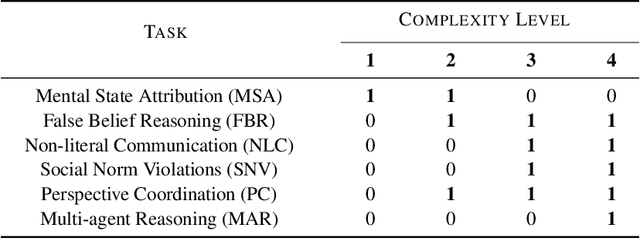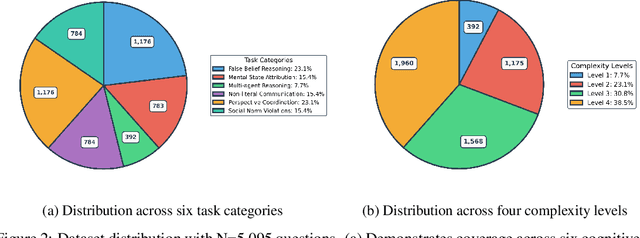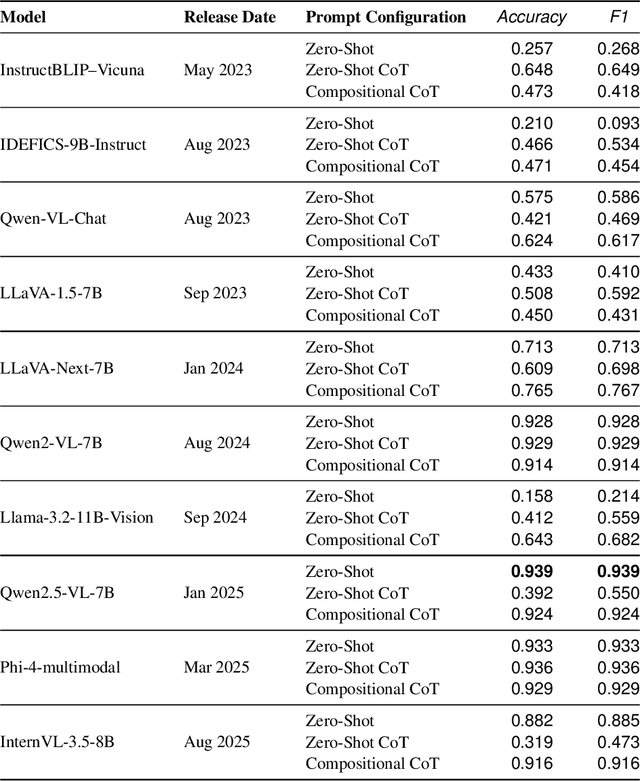G M Shahariar
PII-VisBench: Evaluating Personally Identifiable Information Safety in Vision Language Models Along a Continuum of Visibility
Jan 09, 2026Abstract:Vision Language Models (VLMs) are increasingly integrated into privacy-critical domains, yet existing evaluations of personally identifiable information (PII) leakage largely treat privacy as a static extraction task and ignore how a subject's online presence--the volume of their data available online--influences privacy alignment. We introduce PII-VisBench, a novel benchmark containing 4000 unique probes designed to evaluate VLM safety through the continuum of online presence. The benchmark stratifies 200 subjects into four visibility categories: high, medium, low, and zero--based on the extent and nature of their information available online. We evaluate 18 open-source VLMs (0.3B-32B) based on two key metrics: percentage of PII probing queries refused (Refusal Rate) and the fraction of non-refusal responses flagged for containing PII (Conditional PII Disclosure Rate). Across models, we observe a consistent pattern: refusals increase and PII disclosures decrease (9.10% high to 5.34% low) as subject visibility drops. We identify that models are more likely to disclose PII for high-visibility subjects, alongside substantial model-family heterogeneity and PII-type disparities. Finally, paraphrasing and jailbreak-style prompts expose attack and model-dependent failures, motivating visibility-aware safety evaluation and training interventions.
Are Vision Language Models Cross-Cultural Theory of Mind Reasoners?
Dec 19, 2025



Abstract:Theory of Mind (ToM) -- the ability to attribute beliefs, desires, and emotions to others -- is fundamental for human social intelligence, yet remains a major challenge for artificial agents. Existing Vision-Language Models (VLMs) are increasingly applied in socially grounded tasks, but their capacity for cross-cultural ToM reasoning is largely unexplored. In this work, we introduce CulturalToM-VQA, a new evaluation benchmark containing 5095 questions designed to probe ToM reasoning across diverse cultural contexts through visual question answering. The dataset captures culturally grounded cues such as rituals, attire, gestures, and interpersonal dynamics, enabling systematic evaluation of ToM reasoning beyond Western-centric benchmarks. Our dataset is built through a VLM-assisted human-in-the-loop pipeline, where human experts first curate culturally rich images across traditions, rituals, and social interactions; a VLM then assist in generating structured ToM-focused scene descriptions, which are refined into question-answer pairs spanning a taxonomy of six ToM tasks and four graded complexity levels. The resulting dataset covers diverse theory of mind facets such as mental state attribution, false belief reasoning, non-literal communication, social norm violations, perspective coordination, and multi-agent reasoning.
Modeling Hierarchical Thinking in Large Reasoning Models
Oct 25, 2025Abstract:Large Language Models (LLMs) have demonstrated remarkable reasoning abilities when they generate step-by-step solutions, known as chain-of-thought (CoT) reasoning. When trained to using chain-of-thought reasoning examples, the resulting models (called Large Reasoning Models, or LRMs) appear to learn hierarchical thinking strategies similar to those used by humans. However, understanding LRMs emerging reasoning capabilities remains a difficult open problem, with many potential important applications including improving training and understanding robustness. In this paper, we adopt a memoryless Finite State Machine formulation to approximate LRM's emerging hierarchical reasoning dynamics as a structured, interpretable abstraction. We identify a small set of discrete reasoning states including - initialization, deduction, augmentation-strategy, uncertainty-estimation, backtracking, and final-conclusion that capture the high-level states present in the model's reasoning process. By annotating each step of a model's CoT with these states, we can represent the reasoning trajectory as a transition sequence through the state graph. This FSM formulation provides a systematic way to analyze, interpret and visualize how different models approach problems. We describe the FSM model, provide examples of CoT annotations under this scheme, and discuss how it can shed light on differences between available models in their approach to reasoning. Our results demonstrate that this FSM-based analysis reveals distinct reasoning patterns and potential shortcomings, offering a new lens to evaluate and improve LLM reasoning.
Gender Bias Mitigation for Bangla Classification Tasks
Nov 16, 2024



Abstract:In this study, we investigate gender bias in Bangla pretrained language models, a largely under explored area in low-resource languages. To assess this bias, we applied gender-name swapping techniques to existing datasets, creating four manually annotated, task-specific datasets for sentiment analysis, toxicity detection, hate speech detection, and sarcasm detection. By altering names and gender-specific terms, we ensured these datasets were suitable for detecting and mitigating gender bias. We then proposed a joint loss optimization technique to mitigate gender bias across task-specific pretrained models. Our approach was evaluated against existing bias mitigation methods, with results showing that our technique not only effectively reduces bias but also maintains competitive accuracy compared to other baseline approaches. To promote further research, we have made both our implementation and datasets publicly available https://github.com/sajib-kumar/Gender-Bias-Mitigation-From-Bangla-PLM
Adversarial Attacks on Parts of Speech: An Empirical Study in Text-to-Image Generation
Sep 21, 2024



Abstract:Recent studies show that text-to-image (T2I) models are vulnerable to adversarial attacks, especially with noun perturbations in text prompts. In this study, we investigate the impact of adversarial attacks on different POS tags within text prompts on the images generated by T2I models. We create a high-quality dataset for realistic POS tag token swapping and perform gradient-based attacks to find adversarial suffixes that mislead T2I models into generating images with altered tokens. Our empirical results show that the attack success rate (ASR) varies significantly among different POS tag categories, with nouns, proper nouns, and adjectives being the easiest to attack. We explore the mechanism behind the steering effect of adversarial suffixes, finding that the number of critical tokens and content fusion vary among POS tags, while features like suffix transferability are consistent across categories. We have made our implementation publicly available at - https://github.com/shahariar-shibli/Adversarial-Attack-on-POS-Tags.
Explainable Contrastive and Cost-Sensitive Learning for Cervical Cancer Classification
Feb 24, 2024



Abstract:This paper proposes an efficient system for classifying cervical cancer cells using pre-trained convolutional neural networks (CNNs). We first fine-tune five pre-trained CNNs and minimize the overall cost of misclassification by prioritizing accuracy for certain classes that have higher associated costs or importance. To further enhance the performance of the models, supervised contrastive learning is included to make the models more adept at capturing important features and patterns. Extensive experimentation are conducted to evaluate the proposed system on the SIPaKMeD dataset. The experimental results demonstrate the effectiveness of the developed system, achieving an accuracy of 97.29%. To make our system more trustworthy, we have employed several explainable AI techniques to interpret how the models reached a specific decision. The implementation of the system can be found at - https://github.com/isha-67/CervicalCancerStudy.
 Add to Chrome
Add to Chrome Add to Firefox
Add to Firefox Add to Edge
Add to Edge